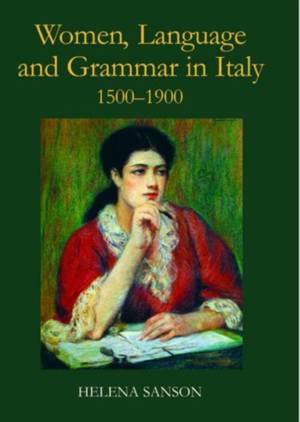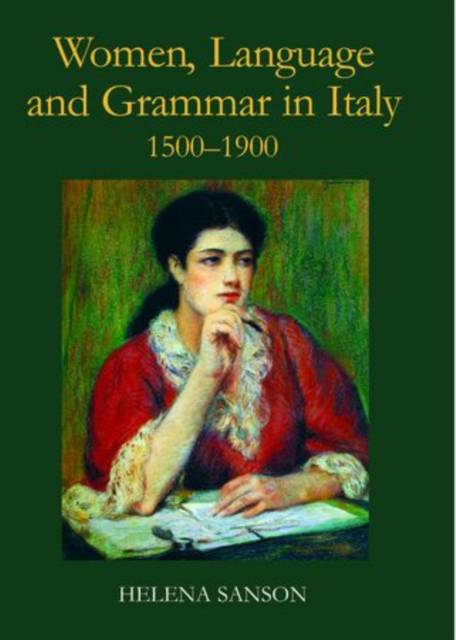
- Retrait gratuit dans votre magasin Club
- 7.000.000 titres dans notre catalogue
- Payer en toute sécurité
- Toujours un magasin près de chez vous
- Retrait gratuit dans votre magasin Club
- 7.000.0000 titres dans notre catalogue
- Payer en toute sécurité
- Toujours un magasin près de chez vous
Description
This monograph examines the relationship between women, language and grammar with particular reference to the Italian context between the sixteenth and the end of the nineteenth century, from the codification of Italian as a literary language to the formation of a unified state. It investigates the role played by women in the Italian linguistic tradition as addressees, readers or authors of grammatical texts. In spite of the ever-growing interest in different aspects of women's life in the Western world through the centuries, little attention has been given up to now to women's linguistic education, their relationship with grammar and the ideas about their use of language. In the context of Italy, these questions were virtually unexplored. This study is the result of extensive first-hand research and detailed analysis of primary sources (well-known texts, as well as minor and rare ones), brought together for the first time and made available to a wider public. Sources range from more specifically linguistic writings, to texts on women's education and conduct books, from literary works (e.g. novels, short-stories, poetry, plays, satirical writings, children's literature), to official government documents, newspapers articles, women's magazines, school texts, letters and memoirs. Its interdisciplinary approach and the richness of its sources make this volume an engaging journey across four centuries in the history of the Italian language the history of grammar, the history of linguistic thought, and the history of women and their education. This is the first work of its kind in the field of Italian studies. Relevant illustrations accompany the book offering readers also a visual appreciation and understanding of the subjects and themes examined in the six chapters.
Spécifications
Parties prenantes
- Auteur(s) :
- Editeur:
Contenu
- Nombre de pages :
- 432
- Langue:
- Anglais
- Collection :
Caractéristiques
- EAN:
- 9780197264836
- Date de parution :
- 07-11-11
- Format:
- Livre relié
- Format numérique:
- Genaaid
- Dimensions :
- 157 mm x 234 mm
- Poids :
- 907 g

Les avis
Nous publions uniquement les avis qui respectent les conditions requises. Consultez nos conditions pour les avis.






